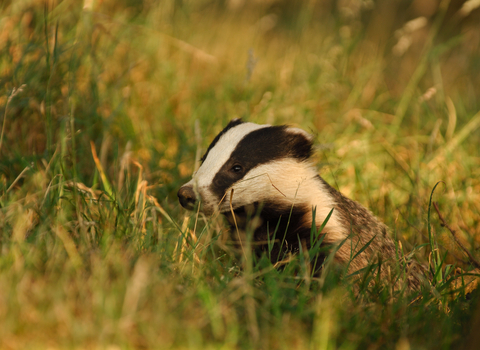Today’s announcement [1] follows a public consultation earlier this year. With the support of The Wildlife Trusts, over 39,000 people responded to the Government’s consultation and 36,958 of those went on to email their MP urging the Government to stop issuing badger cull licences immediately.
Dr Jo Smith, CEO of Derbyshire Wildlife Trust, says:
“The Government has failed to listen to the public who want to see an immediate end to the badger cull. If a further 130,000 animals are killed within the next five years, we could lose 60% of England’s badgers. This is desperately sad and will also have repercussions on the health of natural habitats because badgers are a keystone species, vital to a thriving ecosystem.
“We are extremely disappointed by this decision. Only last week, the Secretary of State, George Eustice, announced measures to protect and restore nature. Killing such a major part of the badger population in this country cannot be compatible with that ambition.”
Today the Government announced new licences will be granted in 2021 and 2022. As licences last for four years, this means that badgers will continue to be shot until 2026. By the end of the cull, 300,000 badgers out of an estimated population of 485,000 may have been culled. 25% of the European population is found in the UK – The Wildlife Trusts believe that the UK has an international responsibility to conserve them.
The Wildlife Trusts are sympathetic to the great hardship that bovine TB causes the farming community but do not believe that culling badgers is an effective way of halting its spread. Accelerated research into cattle vaccination and improved testing regimes for cattle are urgently needed – and improved movement controls on cattle would minimize the risk of further spread of bovine TB.
Dr Jo Smith continues:
“Bovine TB is primarily a cattle disease spread by cattle. Cattle to cattle transmission is the major cause of infection and spread of bovine TB. Evidence demonstrates that culling is likely to be ineffective in fighting the disease and makes a bad situation worse by dispersing badgers over a wider area resulting in increased disease transmission where bTB has reached the badger population.
“That’s why we want to see an immediate end to the badger cull and greater resources put into developing cattle vaccination as well as implementing widespread vaccination of badgers in England. Measures announced today for these don’t go far enough.”

